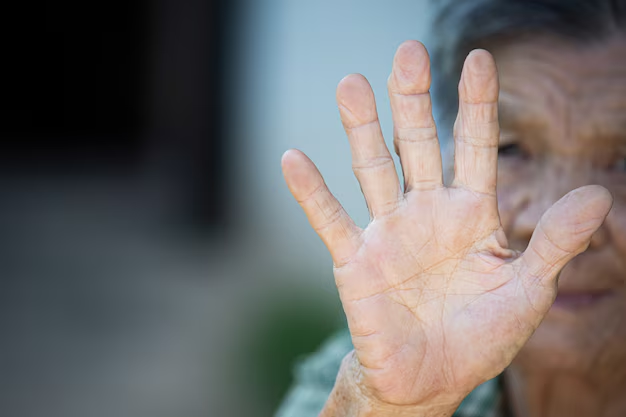Your Guide to How To Tell If You Have Parkinson's Disease
What You Get:
Free Guide
Free, helpful information about Parkinsons FAQ and related How To Tell If You Have Parkinson's Disease topics.
Helpful Information
Get clear and easy-to-understand details about How To Tell If You Have Parkinson's Disease topics and resources.
Personalized Offers
Answer a few optional questions to receive offers or information related to Parkinsons FAQ. The survey is optional and not required to access your free guide.
Recognizing Parkinson’s Disease: Signs You Shouldn’t Ignore
Parkinson's disease is a progressive nervous system disorder that affects movement. Understanding its early signs is crucial for effective management. While only a healthcare professional can provide a definitive diagnosis, being aware of common symptoms can empower you to seek guidance and take control of potential health challenges.
Common Signs of Parkinson’s Disease
Tremors
Trembling or shaking is often among the earliest and most recognizable indicators of Parkinson's. This usually begins in a limb, often the hand or fingers, even when they are at rest.
Slowed Movement (Bradykinesia)
You may notice that your movements become slower over time, making simple tasks more time-consuming and difficult. Walking might become more of a shuffle, and you may find it harder to get up from a seated position.
Rigid Muscles
Muscle stiffness may occur in any part of your body and can be painful and limit your range of motion.
Impaired Posture and Balance
A stooped posture or balance problems can be another indicator of Parkinson's as the disease affects your ability to perform coordinated and balanced movements.
Loss of Automatic Movements
Simple tasks such as blinking, smiling, or arm swinging when you walk might occur less frequently or automatically than before.
Speech Changes
Monotone or a softening of your voice can be a sign of Parkinson’s. People with the disease may slur their speech or hesitate before speaking.
Writing Changes
Writing might become more difficult, with letters appearing smaller than normal, known as micrographia.
When to See a Doctor
If you notice any of these signs, it's wise to consult a healthcare professional. Early diagnosis can significantly impact the management of the disease, potentially slowing its progression and providing a better quality of life through tailored treatments and therapies.
Navigating Life with Parkinson’s Disease
Dealing with a potential Parkinson's diagnosis can be daunting, but there are numerous support systems and resources available that can bring comfort and assistance.
Government Aid Programs
Getting diagnosed might require lifestyle adjustments, including financial considerations. Social Security Disability Insurance (SSDI) can help, providing financial support if the condition hinders your ability to work.
Financial Assistance and Debt Relief
Navigating healthcare costs is a concern. Programs designed to offer debt relief and personal loans with favorable terms may help ease the burden of medical expenses.
Credit Card Solutions
Consider specialized financial services that offer low-interest credit cards or cards designed for healthcare expenses to manage your costs more effectively.
Educational Grants and Opportunities
Engage in educational opportunities or support groups that enhance your understanding of the disease and how to manage it. Many foundations offer grants for educational programs and resources to help families and patients alike.
Resources Available 🌟
🏛 Social Security Disability Insurance (SSDI): Monthly benefits for those unable to work due to Parkinson's.
💳 Low-Interest Credit Options: Financial products aimed at reducing interest on medical expenses.
💰 Debt Management Programs: Tailored plans to assist in managing and paying off healthcare-related debt.
📚 Educational Grants: Resources to fund learning opportunities about managing Parkinson's.
Facing Parkinson’s can be challenging, but leveraging available resources can provide invaluable support, making daily life more manageable. Stay informed, get organized, and remember, you’re not alone in this journey.
What You Get:
Free Parkinsons FAQ Guide
Free, helpful information about How To Tell If You Have Parkinson's Disease and related resources.

Helpful Information
Get clear, easy-to-understand details about How To Tell If You Have Parkinson's Disease topics.

Optional Personalized Offers
Answer a few optional questions to see offers or information related to Parkinsons FAQ. Participation is not required to get your free guide.


Discover More
- Are There Environmental Causes Of Parkinsons
- Can Alcohol Cause Parkinson's
- Can Concussions Cause Parkinson's
- Can Concussions Cause Parkinson's Disease
- Can Dogs Get Parkinson's Disease
- Can Dogs Get Parkinsons
- Can Dogs Have Parkinson's
- Can Dogs Have Parkinson's Disease
- Can Females Get Parkinson Disease
- Can Head Trauma Cause Parkinson's
